Resources

Richard Newton Assistant Professor of Religious Studies Elizabethtown College When I signed up to teach the Bible and Race in the USA, I didn’t know that my students would be able to live stream the lynching of Eric Garner and Tamir Rice. No one told me that modern courtrooms would accept a testimony from one who could liken Michael Brown to a demon. And did I mention that my undergraduate seminar was divided evenly along the color line—three white students with two black students and myself? Colleagues at my new school were excited and nervous for me. No one knew...

Cláudio Carvalhaes Associate Professor McCormick Theological Seminary The classroom is a microcosm of theological education. It changes and perpetuates ideas, behaviors and ideologies. But the classroom is a result and consequence of a larger scheme of structural practices and worldviews. What I have seen in these 8 years of teaching is that everything in theological education is so interconnected. Leadership; faculty composition; faculty meetings; public policies; by-laws; conferences; worship services; syllabi and chosen pedagogies; composition of students’ races; social classes and theological backgrounds, chapels, everything composes a temporary mosaic of what and who schools are and want to be. While patriarchalism, sexism, cultural/identity differences, and

Jennifer Harvey Associate Professor Drake University In some ways it’s really simple. If we had genuinely multi-racial classrooms in the U.S. the challenge of race in those same rooms would be much less of one. We so quickly find ourselves embroiled in an oh-so-familiar conversation when the pedagogical question becomes how to best teach race, privilege, U.S. religious history, ethics, and justice in the religion and theology classroom. How do we keep white students from shutting down? How do we get them to understand? How do we enable them to recognize their stake in such learning when so few of them have had to..
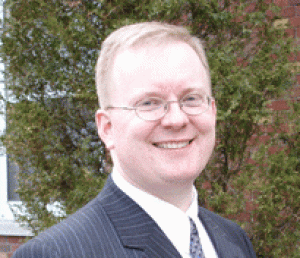
Robert C. Fennell, Th.D. Associate Professor of Historical and Systematic Theology Atlantic School of Theology The most uncomfortable thing I ever say among professional colleagues is that when I was a child I was taught that we are all racist. In 1970s Western Canada, where I grew up, racism was real but often obscured by polite indifference and feigned ignorance. Yet our public school system urged us to see that within most of us there is an element that fears and reacts to difference. The terms for this dynamic were probably different then, but that was the heart of the...
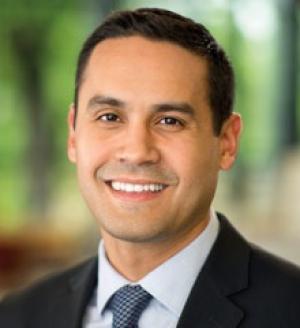
Eric D. Barreto Ferguson is revelatory. “I wanted to comment on the tragic rift that we’re witnessing,” Bob Staake says about his cover for the December 8th issue of The New Yorker, arriving next week. “I lived in St. Louis for seventeen years before moving to Massachusetts, so watching the...
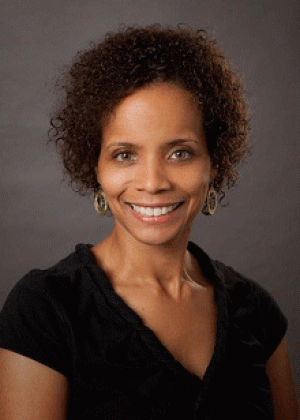
Leah Gunning Francis, Ph.D. Associate Dean for Contextual Education and Assistant Professor of Christian Education Eden Theological Seminary Now I get it. For the past three months, I couldn’t figure out why a jury would believe that an 18 year old unarmed man would charge – head first – toward a police officer who is shooting at him. Soon after Michael Brown was killed on August 9, several local officials intimated that Brown was charging at Officer Darren Wilson and left no other recourse but to kill him. Why would a person with no history of mental illness or of
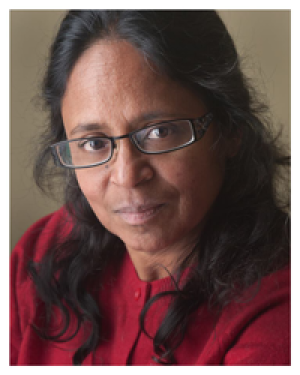
Dr. Himanee Gupta-Carlson Assistant Professor SUNY Empire State College Three stories capture my take on how race matters. Story #1 opens in a grocery parking lot. I park my car and open the door. Trying to remember what I need to buy, I do not notice the pick-up truck beside me as I step out. Then, I hear a male voice bellowing at me to close my door and stop ruining his truck. Hurriedly, I close the door. I apologize and check his vehicle for damages. The man shouts a little louder, glares at me, and revs up his engine...
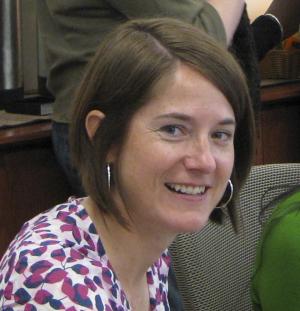
Maureen H. O'Connell, Ph.D. Associate Professor of Theology & Chair of Department of Religion LaSalle University If there is one thing I’ve learned from my 20 students in a new course, “Religion and Racism in America” this semester it’s this: how we go about engaging racism in the classroom may be just as important, if not more, than what sources we use to do so. 1. Racism is not an intellectual reality, but an experiential one. Critical race theorist George Yancy is right (not that I ever doubted him!). Racism is an embodied experience and not simply a sociological phenomenon, no...
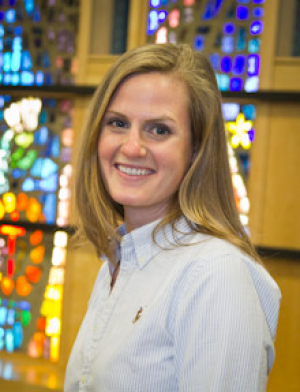
Mara Brecht, Ph.D. Assistant Professor of Theology St. Norbert College Teaching race is a boulder. And up the mountain I push it. When I teach race, I feel like Sisyphus because I never seem to get anywhere. The questions repeat and the anxieties recur each semester. It’s always the same: I know what parts of assigned texts will provoke students. I’m prepared for the discomfort, the tears, and the under-the-breath comments. I can even hear the conversations before they happen: White students indignantly protest Peggy McIntosh’s essay on white privilege: “But I had to earn what I have!” They respond...
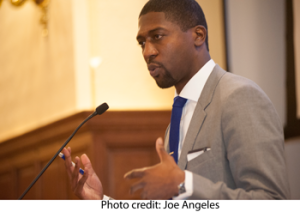
Lerone A. Martin, Ph.D. Assistant Professor of religion and politics in the John C. Danforth Center on Religion and Politics Washington University I have heard much talk about Ferguson and racial segregation in my personal life, as well as in the classroom. Conversations about Ferguson abound in my Civil Rights class this semester as well as in the broader university community. It could hardly be otherwise. We are just fifteen miles away from Canfield Drive. As a historian, I aim to help my students understand Ferguson, racial segregation, and all concomitant issues in a broader historical framework. How did we...